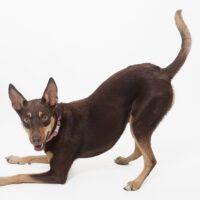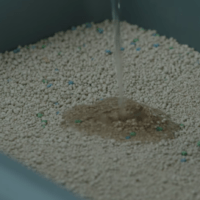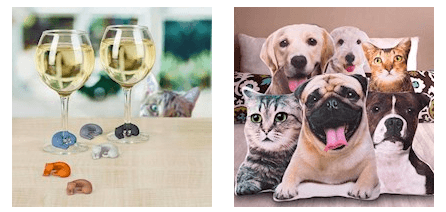How to safely use essential oils around your pets
If you enjoy using essential oils around your home or you are considering using them for your pet’s benefit, these guidelines by Mark Webster will help you determine ho to safely use essential oils around your pets…
Essential oils have become increasingly popular over the past several years. Aromatherapy, fragrances, and cosmetics are a few ways people take advantage of these natural scents. These oils can have positive health benefits, including improving mood and relieving insomnia. Pet owners who use essential oils often wonder if they’re safe for their furry friends.
When used safely, essential oils are generally safe for use near your pets. When it comes to essential oils and pets, you want to ensure you give your pets time to adjust to the new scents. In this article, we’ll explain the steps you can take to use essential oils safely around your pets.
What Are Essential Oils?
Essential oils are plant extracts that capture a plant’s scent and essence. These oils are made by pressing or steaming different parts of a plant, including the bark, leaves, fruit, or flowers, and then extracting the chemical compounds used to make a fragrance. Cold pressing and distillation are two methods used to obtain essential oils.
It often takes several pounds of plants to produce one bottle of essential oil. After extracting the aromatic scents from the plants, they are combined with a carrier oil to create the oils that we buy.
More reading: Pet owners are willing to try alternative therapies

Are Essential Oils Safe for Pets?
Although essential oils are natural substances, they aren’t without risk. Since many pets have a more sensitive sense of smell than humans, fragrances that we find pleasant are potential irritants for them.
Dogs and cats are susceptible to fragrances and may experience unpleasant side effects such as breathing problems, allergies, and skin reactions. You should avoid using essential oils in pets younger than ten weeks old.
When purchasing essential oils, you want to be sure you’re getting a high-quality product. Avoid oils that contain additives, synthetics, artificial ingredients, and those grown with pesticides or other toxins. To minimize the risk to your pets, look for pure therapeutic grade oil when shopping for essential oils.
Essential Oil Risks
Serious side effects can occur when using essential oils incorrectly. Essential oils are highly concentrated substances, and even a few drops can make a difference in their potency. Avoid applying essential oils topically because they may irritate your pet’s skin. There are special pet-safe essential oils you can purchase to use with your pets. Experts formulate these oils to ensure they are non-irritating to pets.
Pets metabolize the chemicals in essential oils rapidly through the skin and orally. Thus, they pose unique risks for puppies, dogs with liver disease, and older dogs. Some experts say essential oils should also be avoided in small dogs. The ASPCA lists essential oils as among the most frequent causes of toxicologic tremors in cats.
If your pet accidentally ingests essential oils, it could cause stomach problems. Be sure to store essential oils in a place where your pets can’t reach them. If your pet does consume an essential oil, immediately call your veterinarian or poison control.
Essential Oils To Avoid
There are few studies about the benefits of essential oils in pets. We know you should avoid some essential oils entirely if you have pets because they are toxic to dogs, cats, or birds.
While there are several essential oils that you should avoid using around your pets, tea tree oil seems to be among the most toxic. You should avoid Tea tree oils that are highly concentrated around both dogs and cats. It only takes a few drops of tea tree oil to trigger a toxic reaction.
While tea tree oil poses a significant risk to pets, there are several other essential oils that you should avoid using around your pets.
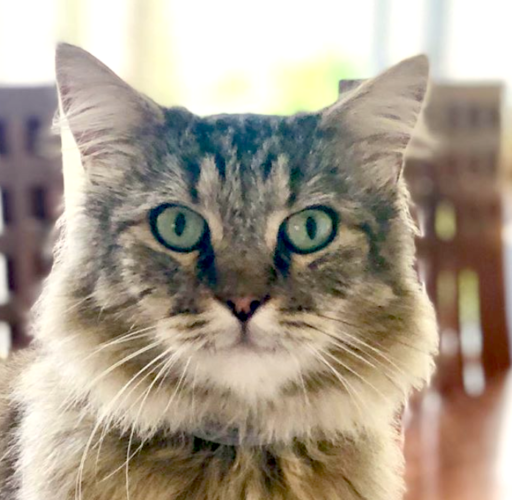
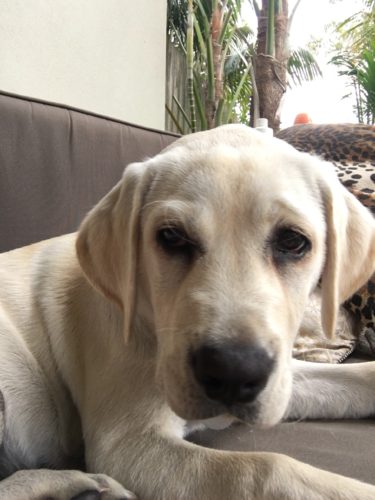
According to ASPCA, these essential oils are toxic to cats:
- Peppermint oil
- Clove oil
- Pennyroyal oil
- Wintergreen
- Ylang ylang
- Cinnamon oil
- Citrus oil
- Pine oils
- Eucalyptus oil
- Oil of sweet birch
- Tea tree oil
According to ASPCA, these essential oils are toxic to dogs:
- Wintergreen
- Tea tree oil
- Pennyroyal oil
- Pine oils
It’s always best to exercise caution when using essential oils around your pets. Some essential oils may pose a greater risk than others. However, there is a lot of variability among essential oil mixtures. Some oils may be highly concentrated, with only a couple of drops being potentially harmful. Always avoid applying essential oils directly to your pets.
Using Essential Oils Safely Around Your Pets
Before using essential oils with your pet, check with your veterinarian to ensure your pet doesn’t have any underlying conditions that essential oils could worsen. Be sure to dilute any essential oils you’re using.
Secure Area
The best way to minimize the risk that essential oils pose to your pets is by using an aromatherapy diffuser in a secure room your pet can’t access. If your pet suffers from breathing problems, it’s probably best to avoid using a diffuser. Pets’ sense of smell is much stronger than humans. Thus, a relatively mild scent to us may be overwhelming to them.
Passive vs. Active Diffusers
Passive essential oil diffusers pose less of a risk than active diffusers for use around pets. Passive diffusers evaporate the oil and disperse the fragrance throughout the air. The most significant threat passive diffusers pose to pets is breathing problems. If you keep the diffuser out of reach of your pet, it’s unlikely they will ingest the essential oils, or they’ll absorb them into their skin.
Active essential oil diffusers are riskier around animals because they emit microdroplets of oil into the air. These droplets can land on your pet’s fur, and they can directly absorb them through the skin. Your pet may also ingest the essential oil when grooming itself. Thus, it’s best to avoid using active diffusers around pets.
Ventilation is Key
If you’re using essential oils around your pets, be sure to use them in a well-ventilated room with access to fresh air. Be sure your pet can freely leave the area where you’re using the essential oils. As mentioned earlier, always dilute essential oils you’re going to use around your pets.
Know the Symptoms of Essential Oil Poisoning
Just as you monitor your dog and other pets for food allergies, when you start using essential oils around your pet, it’s critical to become familiar with the warning signs that your pet is suffering from adverse side effects from the oils. Dangerous side-effects include:
- Drooling
- Vomiting
- Tremors
- Breathing problems
- Wobbling
- Low body temperature
- Low heart rate
- Liver failure
If your pet is displaying any of these symptoms, immediately call your veterinarian or an Animal Poison Control Center.
Final Thoughts
Before using these oils around your animal companions, it’s important to understand the risks. Animal’s sense of smell is much more sensitive than humans, so what may be a pleasant aroma to you may be unbearable to your pet. Don’t topically apply essential oils to your pet without consulting a veterinarian.
Be sure to store essential oils in secure places your pet can’t access. Always choose high-quality essential oils and dilute them before using them around your pet. If you’re using an essential oil diffuser, be sure the room is well ventilated, and your pet can leave the area if the scent becomes overwhelming.
Being a pet owner doesn’t mean you have to give up essential oils. When used cautiously, essential oils and pets can coexist.
About the author:
Mark Webster is the co-founder and chief editor at DogFoodHeaven.com. His aim? Simple. Cut through the jargon and help you make the right decisions for your furry four legged friends.
More pet care articles
- Organisation tips to make it easier for you to take care of your pet’s healthOrganisation tips to make it easier for you to take care of your pet’s health Most of us lead busy lives, so it is all too
- Tips for Taking Good Care of Your Purebred PuppyTips for Taking Good Care of Your Purebred Puppy Are you thinking about getting a puppy? Perhaps a rescue dog or a purebred puppy? These tips
- How to safely use essential oils around your petsHow to safely use essential oils around your pets If you enjoy using essential oils around your home or you are considering using them for your
- Robo-pets: a new breed of fur baby?Robo-pets: a new breed of fur baby? If having a pet just isn’t practical for your lifestyle, could a robotic companion be the next best thing?
- Cats and litter: 7 Cat Litter Box RulesCats and litter: 7 Cat Litter Box Rules and the Best Cat Litter What type of cat litter does your cat prefer to use? What about
- What Happens to Your Pets in the Event of Your Death?What Happens to Your Pets in the Event of Your Death? Death is not something that many of us like to think about but it is
